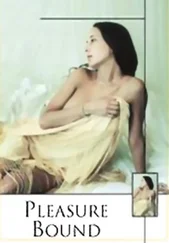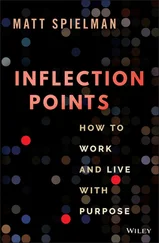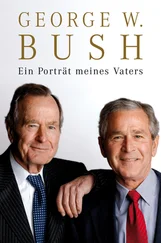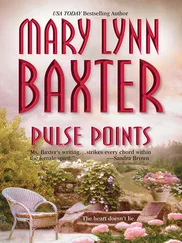I discovered that I was a natural organizer. My senior year at Andover, I appointed myself commissioner of our stickball league. I called myself Tweeds Bush, a play on the famous New York political boss. I named a cabinet of aides, including a head umpire and a league psychologist. We devised elaborate rules and a play-off system. There was no wild card; I’m a purist.
We also came up with a scheme to print league identification cards, which conveniently could double as fake IDs. The plan was uncovered by school authorities. I was instructed to cease and desist, which I did. In my final act as commissioner, I appointed my successor, my cousin Kevin Rafferty.
That final year at Andover, I had a history teacher named Tom Lyons. He liked to grab our attention by banging one of his crutches on the blackboard. Mr. Lyons had played football at Brown University before he was stricken by polio. He was a powerful example for me. His lectures brought historical figures to life, especially President Franklin Roosevelt. Mr. Lyons loved FDR’s politics, and I suspect he found inspiration in Roosevelt’s triumph over his illness.
Mr. Lyons pushed me hard. He challenged, yet nurtured. He hectored and he praised. He demanded a lot, and thanks to him I discovered a life-long love for history. Decades later, I invited Mr. Lyons to the Oval Office. It was a special moment for me: a student who was making history standing next to the man who had taught it to him so many years ago.

As the days at Andover wound down, it came time to apply to college. My first thought was Yale. After all, I was born there. One time-consuming part of the application was filling out the blue card that asked you to list relatives who were alumni. There was my grandfather and my dad. And all his brothers. And my first cousins. I had to write the names of the second cousins on the back of the card.
Despite my family ties, I doubted I would be accepted. My grades and test scores were respectable but behind many in my class. The Andover dean, G. Grenville Benedict, was a realist. He advised that I “get some good insurance” in case Yale didn’t work out. I applied to another good school, the University of Texas at Austin, and toured the campus with Dad. I started to picture myself there as part of an honors program called Plan Two.
At the mailbox one day, I was stunned to find a thick envelope with a Yale acceptance. Mr. Lyons had written my recommendation, and all I could think was that he must have come up with quite a letter. Clay Johnson opened his admissions letter at the same time. When we agreed to be roommates, the decision was sealed.

Leaving Andover was like ridding myself of a straitjacket. My philosophy in college was the old cliché: work hard, play hard. I upheld the former and excelled at the latter. I joined the Delta Kappa Epsilon fraternity, played rugby and intramural sports, took road trips to girls’ colleges, and spent a lot of time hanging out with friends.
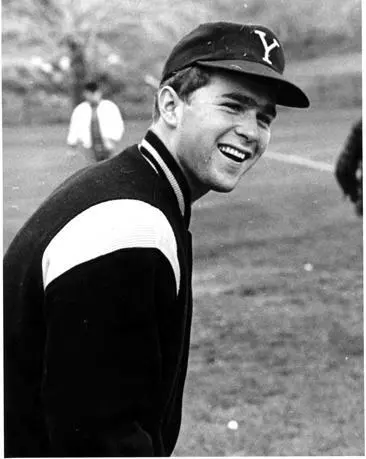
At Yale.
My boisterous spirit carried me away at times. During my senior year, we were at Princeton for a football game. Inspired by the Yale win—and more than a little booze—I led a group onto the field to tear down the goalposts. The Princeton faithful were not amused. I was sitting atop the crossbar when a security guard pulled me down. I was then marched the length of the field and put in a police car. Yale friends started rocking the car and shouting, “Free Bush!”
Sensing disaster, my friend Roy Austin—a big guy from the island of St. Vincent who was captain of the Yale soccer team—yelled at the crowd to move. Then he jumped into the car with me. When we made it to the police station, we were told to leave campus and never return. All these years later I still haven’t been back to Princeton. As for Roy, he continued to hone his diplomatic skills. Four decades later, I appointed him ambassador to Trinidad and Tobago.
At Yale, I had no interest in being a campus politician. But occasionally I was exposed to the politics of the campus. The fall of my freshman year, Dad ran for the Senate against a Democrat named Ralph Yarborough. Dad got more votes than any Republican candidate in Texas history, but the national landslide led by President Johnson was too much to overcome. Shortly after the election, I introduced myself to the Yale chaplain, William Sloane Coffin. He knew Dad from their time together at Yale, and I thought he might offer a word of comfort. Instead, he told me that my father had been “beaten by a better man.”
His words were a harsh blow for an eighteen-year-old kid. When the story was reported in the newspapers more than thirty years later, Coffin sent me a letter saying he was sorry for the remark, if he had made it. I accepted his apology. But his self-righteous attitude was a foretaste of the vitriol that would emanate from many college professors during my presidency.
Yale was a place where I felt free to discover and follow my passions. My wide range of course selections included Astronomy, City Planning, Prehistoric Archaeology, Masterpieces of Spanish Literature, and, still one of my favorites, Japanese Haiku. I also took a political science course, Mass Communication, which focused on the “content and impact of the mass media.” I ended up with a 70, which might explain my shaky relations with the media over the years.
My passion was history, which became my major. I enjoyed listening to the lectures of professors like John Morton Blum, Gaddis Smith, and Henry Turner. One of my first history courses focused on the French Revolution. “My business is the past,” Professor Stanley Mellon liked to say. He gave gripping accounts of the Tennis Court Oath, the terror of Robespierre, and the rise of Napoleon. I was appalled by the way the ideas that inspired the Revolution were cast aside when all power was concentrated in the hands of a few.
One of my most memorable courses was History of the Soviet Union, taught by an East German lecturer named Wolfgang Leonhard. Mr. Leonhard had fled Nazi Germany as a boy and grown up in the Soviet Union, where his mother was arrested during Stalin’s purges. He was groomed to be a communist official, but he defected to the West. In his thick German accent, he described the show trials, mass arrests, and widespread deprivations. After listening to him, I never thought about the Soviet Union or the communist movement the same way. The class was an introduction to the struggle between tyranny and freedom, a battle that has held my attention for the rest of my life.
My senior year, I took a course called The History and Practice of American Oratory, taught by Professor Rollin G. Osterweis. We read famous American speeches, from the fiery sermons of colonial preacher Jonathan Edwards to President Roosevelt’s “Day of Infamy” address after Pearl Harbor. I was struck by the power of words to shape history. I wrote a paper analyzing Georgia journalist Henry W. Grady’s speech on the New South and drafted four minutes of remarks nominating Red Sox star Carl Yastrzemski for mayor of Boston. Professor Osterweis taught us how to structure a speech: introduction, three main points, peroration, and conclusion. I’ve remembered his model all my life, which, as it turned out, has included quite a few speeches.
None of this is to suggest I was a particularly noteworthy student. I think it’s fair to say I got more out of the experience than my professors did. John Morton Blum was once asked what he remembered about his famous student George W. Bush. He replied, “I haven’t the foggiest recollection of him.” But I remember Professor Blum.
Читать дальше



